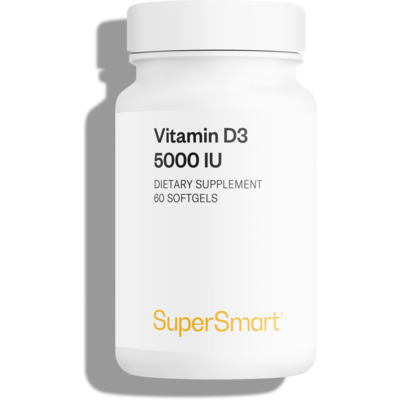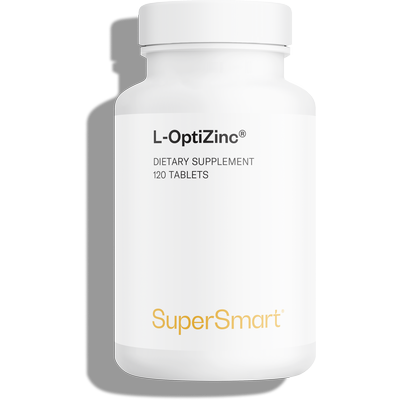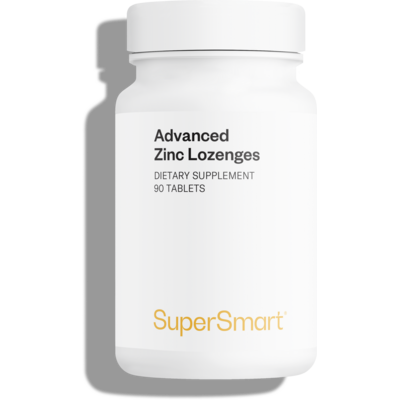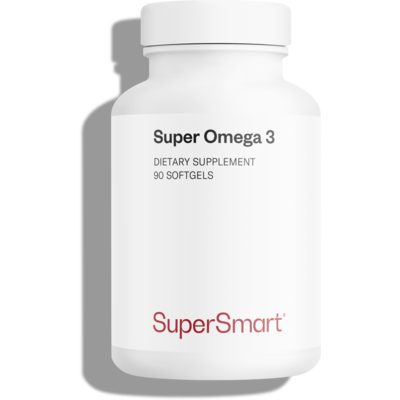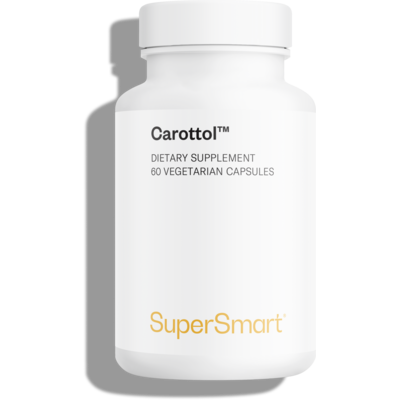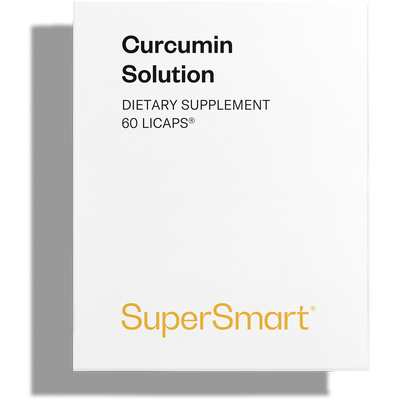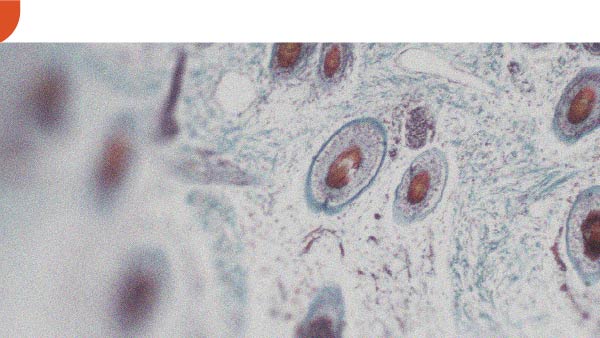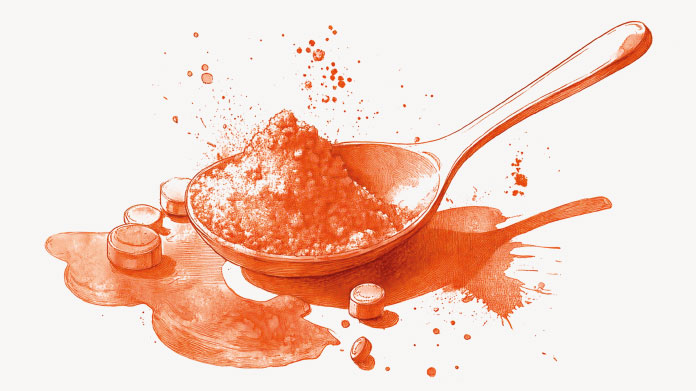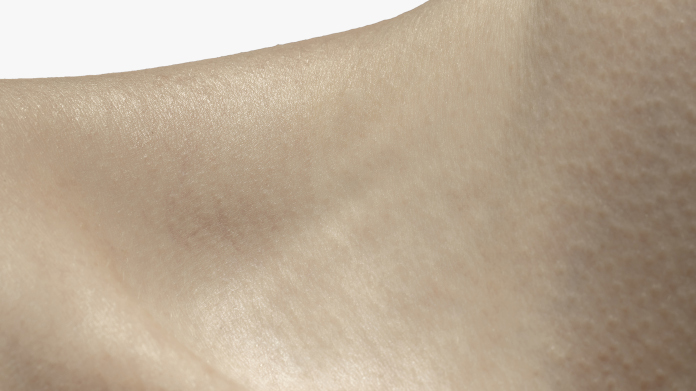Acne: which supplements should you take?
How is acne caused and what are the best ways and supplements for combatting it?
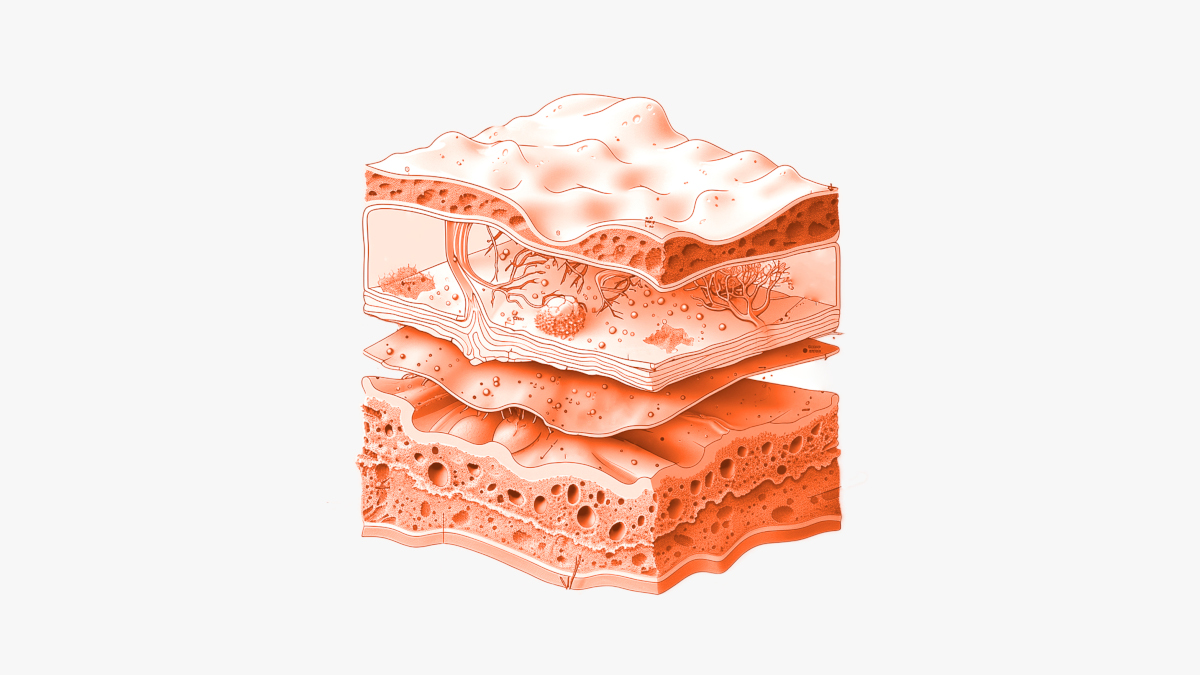
What exactly is acne?
Acne is a skin disorder characterised by oily skin and the appearance of spots on the face, upper back or torso.
It mainly affects adolescents but can also appear in adults, especially pregnant women due to pregnancy-induced hormonal changes.
Causes of acne
Acne is usually caused by several factors, sometimes simultaneous:
- excessive sebum secretion by the sebaceous glands;
- retention of this sebum in hair follicles;
- inflammation of the hair follicles;
- proliferation of bacteria, especially Propionibacterium acnes. This microorganism naturally present in follicles feeds off surplus sebum and can proliferate excessively.
Consequences of this skin disorder
Acne is not normally serious and in most people, disappears between the ages of 20 and 30.
However, the psychological effects can be significant, especially in cases of severe acne when physical appearance is affected.
In the most serious cases, scarring can remain after the acne has gone.
How can you prevent and get rid of acne?
Before we look at the best anti-acne supplements, here are a few key pointers for minimising the risk of developing acne or making it worse.
First and foremost, it is essential to be meticulous about good skin hygiene :
- it’s best to wash with a ‘soap-free’ cleansing gel and to keep your skin well-hydrated;
- with regard to make-up, it’s better to simply avoid it, especially foundation creams and oil-based cosmetics;
- don’t scratch or squeeze your spots, as this can lead to permanent scarring;
- you should also take care to protect your skin from the sun.
Finally, eating a varied, balanced diet helps to maintain healthy skin and thus reduce acne.
As we’ll see, certain supplements can also help you in this regard. Be sure to consult your doctor to check that they are suitable for you or if you suffer from severe acne that may require targeted medication.
The best supplements for fighting acne
Zinc: essential for fighting acne
Zinc is without doubt the most commonly recommended supplement for combatting acne and oily skin.
First of all, it helps to maintain normal skin. A lack of zinc is actually associated with many skin issues (1). It’s also thought to have anti-inflammatory effects beneficial for reducing the redness and swelling of acne eruptions.
In addition, zinc supports normal immune system function and may have antibacterial properties which can help with acne problems.
In terms of supplements, opt for highly-bioavailable forms in either capsules (such as L-OptiZinc®) or suckable lozenges (such as Advanced Zinc Bisglycinate Lozenges).
Omega-3 supplements and acne
Omega-3, especially EPA and DHA, are often classified as anti-inflammatories and are therefore being studied for their potential effects on acne.
It’s thought they may be able to reduce redness and swelling (2).
They are found in oily fish, and at higher concentrations in fish oils (such as the oil-based capsules Super Omega 3).
Vitamins to prioritise for acne problems
In terms of vitamins, the ones to focus on for acne are A and D:
- vitamin A plays a part in maintaining normal skin and mucous membranes by helping to reduce sebum production, a major cause of acne (3). But take care when supplementing with vitamin A as it can be toxic at very high doses. Opt for a supplement rich in natural carotenoids (such as Carottol™) ;
- vitamin D supports normal immune system function (including skin immunity). It’s thought to also play a role in regulating inflammation and sebum production, as well as in skin health in general (4). As acne is associated with low vitamin D levels, taking a supplement such as Vitamin D3 5000IU) could improve symptoms in vitamin D-deficient acne-sufferers.
Turmeric supplements for inflammatory acne
Turmeric is frequently used in alternative medicine, the root being recognized for having anti-inflammatory and antioxidant benefits (5).
Turmeric is of particular interest in the case of inflammatory acne which manifests in inflamed lesions (wheals, pustules, nodules, cysts …), as opposed to comedones (blackheads and whiteheads) that are not associated with inflammation.
What’s more, turmeric supports the immune system by exerting antimicrobial activity against several types of bacteria including Propionibacterium acnes (6).
To obtain maximum benefit from its properties, turmeric can be consumed in the form of extracts standardized in curcuminoids, the plant’s active ingredients (such as Natural Curcuma or Curcumin Solution).
Are there probiotics that work against acne?
We end our round-up with a look at the probiotics commonly recommended for acne.
Some probiotic species, such as Lactobacillus casei and Lactobacillus rhamnosus, have been studied for their potential to reduce inflammation, regulate the immune system or strengthen the skin barrier (7-9).
So in certain synergistic formulations, these microorganisms have been combined with other nutrients good for them or for the skin (one such example being Derma Relief, in which these two probiotics are combined with fructooligosaccharides and vitamin C).
SuperSmart ADVICE
References
- Bae YS, Hill ND, Bibi Y, Dreiher J, Cohen AD. Innovative uses for zinc in dermatology. Dermatol Clin. 2010 Jul;28(3):587-97. doi: 10.1016/j.det.2010.03.006. PMID: 20510767.
- Jung JY, Kwon HH, Hong JS, Yoon JY, Park MS, Jang MY, Suh DH. Effect of dietary supplementation with omega-3 fatty acid and gamma-linolenic acid on acne vulgaris: a randomised, double-blind, controlled trial. Acta Derm Venereol. 2014 Sep;94(5):521-5. doi: 10.2340/00015555-1802. PMID: 24553997.
- Cook MK, Perche PO, Feldman SR. The use of oral vitamin A in acne management: a review. Dermatol Online J. 2022 Oct 15;28(5). doi: 10.5070/D328559239. PMID: 36809126.
- Lim SK, Ha JM, Lee YH, Lee Y, Seo YJ, Kim CD, Lee JH, Im M. Comparison of Vitamin D Levels in Patients with and without Acne: A Case-Control Study Combined with a Randomized Controlled Trial. PLoS One. 2016 Aug 25;11(8):e0161162. doi: 10.1371/journal.pone.0161162. PMID: 27560161; PMCID: PMC4999291.
- Aggarwal BB, Harikumar KB. Potential therapeutic effects of curcumin, the anti-inflammatory agent, against neurodegenerative, cardiovascular, pulmonary, metabolic, autoimmune and neoplastic diseases. Int J Biochem Cell Biol. 2009 Jan;41(1):40-59. doi: 10.1016/j.biocel.2008.06.010. Epub 2008 Jul 9. PMID: 18662800; PMCID: PMC2637808.
- Liu CH, Huang HY. In vitro anti-propionibacterium activity by curcumin containing vesicle system. Chem Pharm Bull (Tokyo). 2013;61(4):419-25. doi: 10.1248/cpb.c12-01043. PMID: 23546001.
- Sánchez-Pellicer P, Navarro-Moratalla L, Núñez-Delegido E, Ruzafa-Costas B, Agüera-Santos J, Navarro-López V. Acne, Microbiome, and Probiotics: The Gut-Skin Axis. Microorganisms. 2022 Jun 27;10(7):1303. doi: 10.3390/microorganisms10071303. PMID: 35889022; PMCID: PMC9318165.
- Chilicka K, Dzieńdziora-Urbińska I, Szyguła R, Asanova B, Nowicka D. Microbiome and Probiotics in Acne Vulgaris-A Narrative Review. Life (Basel). 2022 Mar 15;12(3):422. doi: 10.3390/life12030422. PMID: 35330173; PMCID: PMC8953587.
- Fabbrocini G, Bertona M, Picazo Ó, Pareja-Galeano H, Monfrecola G, Emanuele E. Supplementation with Lactobacillus rhamnosus SP1 normalises skin expression of genes implicated in insulin signalling and improves adult acne. Benef Microbes. 2016 Nov 30;7(5):625-630. doi: 10.3920/BM2016.0089. Epub 2016 Sep 6. PMID: 27596801.
Keywords
4 Days
Easy to navigate site
Easy to navigate site, had what I was searching for, good price. easy order-check out
James Tucker
10 Days
My skin is clearing up nicely!
Pretty good for my skin so far.
Christian
12 Days
The new packaging is excellent
The new packaging is excellent - finally! No more squashed boxes and torn envelopes.
GORAN
13 Days
Great Product
Great Product
Larry Garrett
17 Days
Quick shipping
Quick shipping; good price. No issues!
Mary McCarty
19 Days
Thr product is very good and is helping…
Thr product is very good and is helping me on my health. Then is always on time
LUGO Luz
21 Days
Buying was fine
Buying was fine. I had problems with the website not recognizing my login info, and had to call to get it fixed. Other than that, everything was good.
David S. Clark
22 Days
Your super maca and super ginseng are…phenomenal
Your super maca and super ginseng are phenomenal supplements that compliment each other when taking them together. Fantastic feeling of well-being and lots of mid day energy without the crash.
Keith Mason
24 Days
I have had amazing results with every…
I have had amazing results with every supplement I've purchased. I am extremely satisfied with this company
kirstin Torres
24 Days
Fine products
Fine products . They are on the leading edge of online supplements. The only issue -so far-is they sometime run out of subscription items.
Jason Argos
27 Days
The ordering process is very user…
The ordering process is very user friendly and the products always come in a timely manner.
CARTER Rhonda
28 Days
The price for Dr
The price for Dr. Pero's AC-11 is reasonable and in line with his views. (my former colleague). Keep it pure.
CAMPBELL Clayton
31 Days
Right on every time.
Right on every time.
Arthur Nicholas
34 Days
They are cheaper than everyone else and…
They are cheaper than everyone else and the shipping was fast. Great company.
Patricia Adams
41 Days
Availability of quality health…
Availability of quality health supplements and it's wide variety is impressive. Ordering is seamless and shipping even during the holidays is well streamlined.
Mohamad Hussein


